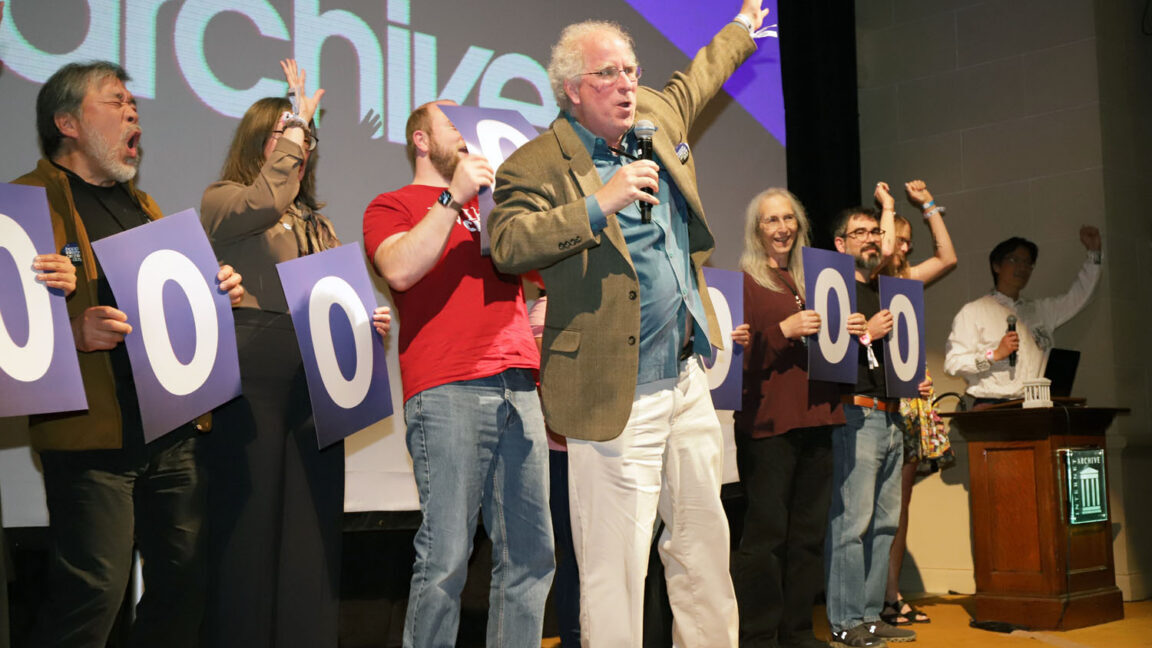Last month, the Internet Archive’s Wayback Machine archived its trillionth webpage, and the nonprofit invited its more than 1,200 library partners and 800,000 daily users to join a celebration of the moment. To honor “three decades of safeguarding the world’s online heritage,” the city of San Francisco declared October 22 to be “Internet Archive Day.” The Archive was also recently designated a federal depository library by Sen. Alex Padilla (D-Calif.), who proclaimed the organization a “perfect fit” to expand “access to federal government publications amid an increasingly digital landscape.”
The Internet Archive might sound like a thriving organization, but it only recently emerged from years of bruising copyright battles that threatened to bankrupt the beloved library project. In the end, the fight led to more than 500,000 books being removed from the Archive’s “Open Library.”
“We survived,” Internet Archive founder Brewster Kahle told Ars. “But it wiped out the Library.”
An Internet Archive spokesperson confirmed to Ars that the archive currently faces no major lawsuits and no active threats to its collections. Kahle thinks “the world became stupider” when the Open Library was gutted—but he’s moving forward with new ideas.



Books are less valuable than a record of the state of the digital space, through time.
Indeed, I consider this to be an okay outcome. It’s the Internet Archive, not the All Information Ever Archive. It archives the Internet. There are other projects archiving books.
And it’s the Internet Archive, not the Internet Barely Disguised Pirate Bay. I’m okay if the data they’re archiving isn’t super easy to access by everyone all the time, as long as it’s being preserved. Someday eventually copyright law might become sane again, at which point these archives can come out of their bunkers. Until then those bunkers are important for keeping them safe.
I really think the Internet Archive did a downright stupid thing poking this bear with a stick. I’m relieved they survived and I hope they learned from the experience.
Copyright should not apply to a historic record, but things don’t become historic record upon creation, but sometime after. However, you can’t have a historic record if it isn’t recording history as it happens so…once enough time passes to make a historic record case versus copyright how do you add back the stuff that wasn’t recorded at the time?
The removal of this content is itself now historic record so tag the missing information and why there is a black hole where the record should be. Digital history, and thus history, as swiss cheese because the value of copyright matters more than accuracy of the history of the digital age itself. It is a tragedy to the future that we can’t record reality because someone claims they own it…
We are a stupid, stupid species.
You archive it but don’t publish it.
That might be a viable option.
It’s the approach I’ve been advocating for for years now, throughout this whole lawsuit circus. I got a lot of downvotes for it over the years too, people couldn’t separate my position from capitulation.
Really, it’s just a matter of fighting the battles you can win and not fighting the battles that will annihilate you simply on the basis of principle. The analogy I kept using was a man carrying a precious and fragile treasure going up to a bear and whacking it with a stick, and then acting like we should be sympathetic to them as they desperately scream about how the precious treasure was at risk now that the bear was eating their leg.
They should be focusing on protecting that treasure. Let the EFF take the bear on, that’s what they are for.
It does call into question the motive of the archive and it’s financial viability to pivot to doing that.
You mean in term of internet archives mission and where it can do the most good? I would agree.